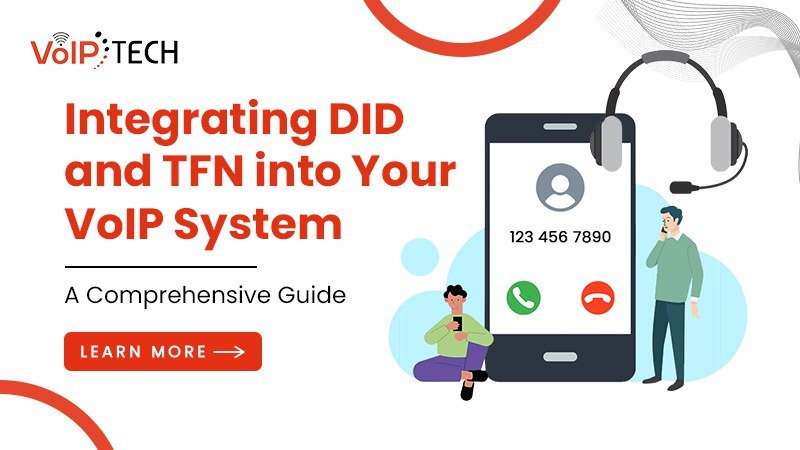Integrating DID and TFN into Your VoIP System: A Comprehensive Guide

In today’s fast-paced business world, effective
communication is crucial. Direct Inward Dialing (DID) and Toll-Free Numbers
(TFN) can significantly enhance your VoIP system, making it easier for
customers to reach you and for you to manage incoming calls. This guide will
walk you through the basics of DID and TFN, their benefits, and how to integrate
them into your VoIP system.
What is Direct Inward Dialing (DID)?
Direct Inward Dialing (DID) allows businesses
to assign individual phone numbers to each employee or department without
needing separate physical phone lines. This means customers can directly reach
the person or department they need without going through a switchboard.
Benefits of DID:
Improved Customer Service: Customers can quickly connect with the right person or department.
Increased Efficiency: Calls are routed directly to the intended recipient, reducing wait
times.
Enhanced Tracking: Monitor and analyze call patterns for better decision-making.
What are Toll-Free Numbers (TFN)?
Toll-Free Numbers are phone numbers that enable
customers to contact a business at no cost to them.These numbers usually start with prefixes like 800, 888, or 877.
Benefits of TFN:
Expanded Reach: Customers across the country can call you for free.
Professional Image: Having a toll-free number enhances your business’s credibility.
Marketing Tool: Track the effectiveness of marketing campaigns by using different
toll-free numbers for each campaign.
Integrating DID and TFN into Your VoIP System
Step 1: Choose a Reliable VoIP Provider
Your VoIP provider should offer robust support
for both DID and TFN. Look for providers with a track record of reliable
service and good customer support.
Step 2: Obtain Your DID and TFN Numbers
Contact your VoIP provider to obtain DID and
TFN numbers. They will guide you through the selection process and help you
choose numbers that fit your business needs.
Step 3: Configure Your VoIP System
Once you have your DID and TFN numbers, you’ll
need to configure your VoIP system. Here’s how:
Assign DID Numbers: Allocate individual DID numbers to each employee or department. This
can usually be done through your VoIP provider’s management portal.
Set Up Call Routing: Configure call routing rules to ensure calls to DID numbers reach the
correct person or department. This can involve setting up call forwarding,
automated attendants, or voicemail.
Integrate TFN: Link your toll-free numbers to your VoIP system. Set up call routing so
that calls to these numbers are directed to the appropriate departments or
individuals.
Step 4: Test Your System
Before going live, test your DID and TFN
integrations to ensure they work correctly. Make test calls to verify that
calls are being routed properly and that all features are functioning as
expected.
Step 5: Monitor and Optimize
After integration, continuously monitor your
system’s performance. Use analytics tools provided by your VoIP provider to
track call volumes, durations, and other metrics. This data can help you
optimize your call routing and improve customer service.
Conclusion
Integrating DID and TFN into your VoIP system
can revolutionize your business communications. By providing direct access to
employees and offering toll-free calling options, you enhance customer
satisfaction and streamline your operations. Follow these steps to seamlessly
integrate these features and take your business communication to the next
level.
Ready to enhance your VoIP system with DID and
TFN? Contact VoIPTech Solutions today and let us help you get started!



